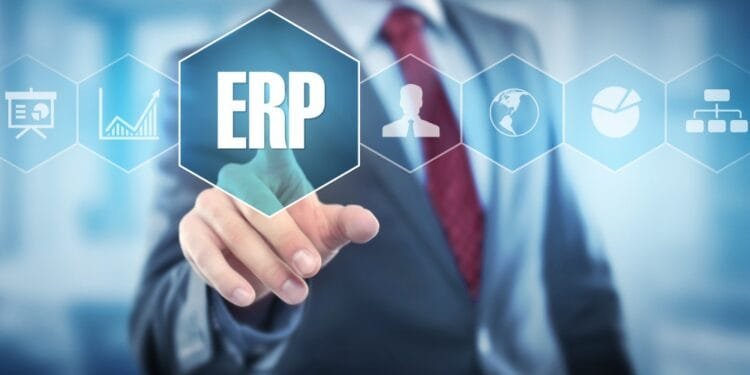You can better connect processes and data with enterprise resource planning (ERP). However, there is an issue when it comes to learning more about ERP and how you can use it. The problem is that the overwhelming amount of knowledge accessible may be a burden to you rather than a benefit.
We keep things easy in this complete guide to enterprise resource planning. We simplify the technical language to show you what you should know about ERP.
We’ll show you how this powerful corporate tool can enhance your performance and productivity. And overall, when you use ERP, you’ll end up making better decisions.
What Is ERP?
In simple terms, enterprise resource planning combines all of your critical business activities. For example, finance, human resources, CRM, and warehouse management, combine into a single system.
ERP solutions employ a centralized database to handle these multiple activities. They also provide data and procedures throughout your whole organization. This prevents you from working in isolation.
When Did ERP Appear?
As enterprise organizations tried to manage with decentralized processes and different data, ERP came about as a need. ERP was a new, centralized solution with loads of potential.
ERP was made possible by the introduction of dependable networks and servers. ERP software was once only available to large-scale companies. Yet, with the advent of Software-as-a-Service (SaaS) systems (cloud computing), ERP solutions are now accessible and cheap to SMEs.
ERP Benefits
ERP aids in the more effective operation of enterprises. As a result, we have improved cooperation in business. Among the most significant impediments to company success is an isolationist mentality.
When various offices or departments don’t exchange information, efficiency and productivity suffer. Furthermore, as long as business departments continue to employ separate databanks, you will never realize the benefits of technology and Big Data. ERP provides shared access to real-time data, and the importance of this consolidated data is immense.
Increase Productivity
You can make productivity gains with ERP as it helps your organization save time. It also helps to eliminate duplications and other human errors. It does this by automating manual operations and procedures.
As a result, workers are more productive. Furthermore, connecting your systems helps your employees avoid mundane activities and concentrate more time on tasks that generate revenue.
Real-Time Analysis
ERP enables rational decision-making by providing real-time analysis of information, as well as easy-to-use reporting. For example, with ERP systems, you can identify which processes are efficient and costing you money.
Also, ERP can help you increase overall efficiency and decrease operating expenses. It does this by simplifying operations throughout your company.
ERP may also assist you in lowering manufacturing costs by providing access to business analytics. So, ERP may help with many aspects of your organization!
If you want to learn more about which ERP platform might suit your needs best, check out this Oracle vs IFS ERP comparison.
Make Your Resource Planning Count
Now you should have a good idea of how ERP can help with your resource planning. You’ll become more efficient as an SME, and you’ll communicate better within your company.
Thanks for stopping by and checking out this post. If you found it helpful, please consider checking out our blog.








